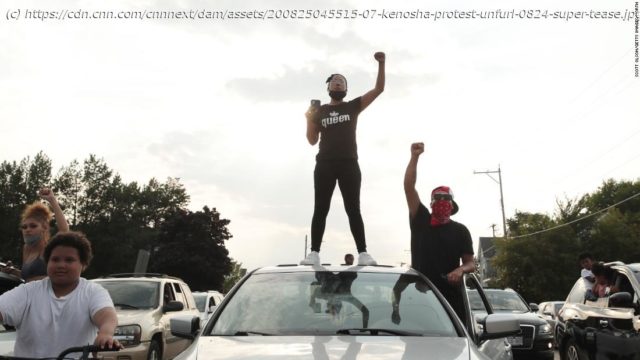Denise Lockwood has been reporting on crime in Wisconsin for decades. After the shooting of Jacob Blake, she says she feels like she’s reporting the same story over and over again, and without action against systemic racism by Wisconsin policy makers, she’s afraid that she’ll just have to keep writing it.
To ignore the social, civic and economic oppression that Black people experience is wrong. Wisconsin policymakers need to take a good hard look at these issues and stop pretending these police shootings aren’t related to failures in underfunded social systems. For decades, the southeastern Wisconsin region has seen its share of problems around race. Milwaukee is among the worst places for Black people to live in the country. Racine, the town I cover for the Racine County Eye, has much higher rates of infant mortality and unemployment for Black residents than White ones, according to the United Way of Racine County. Kenosha similarly has struggled with issues of systemic racism. These areas all share the same problems — mass incarceration, high infant mortality, lack of mental health care access, unequal education, unemployment and drugs. But for the past 20 years, I feel like I’ve written the same story over and over. Until Wisconsin policymakers confront these issues around systemic racism and violence, I worry that I’ll just have to keep writing it. The Black incarceration rate in Racine County remains one of the biggest issues. The percentage of Black people incarcerated from Racine County represented 53% of the jail population in 2017. But Black people represented only about 11% of the population of Racine County during that same time, according to the Vera Institute of Justice. When I wrote for the Milwaukee Business Journal, I often heard CEOs of manufacturing companies complain about lacking a skilled workforce. They would say that people didn’t dress well, speak well or show up on time. Workers had an attitude or couldn’t problem-solve. The conversation would typically shift to the failed education system, failed family units and lack of resilience. And then the discussion took a U-turn around how not to pay state and local taxes. As a business owner, I am not a fan of paying taxes, either. But I also want a skilled workforce. To be fair, some of these issues in Wisconsin could be addressed (and some are being addressed) with trauma-informed care, more loans for minority-owned businesses, retooling educational models and simple things like offering free transportation for people seeking a job.






